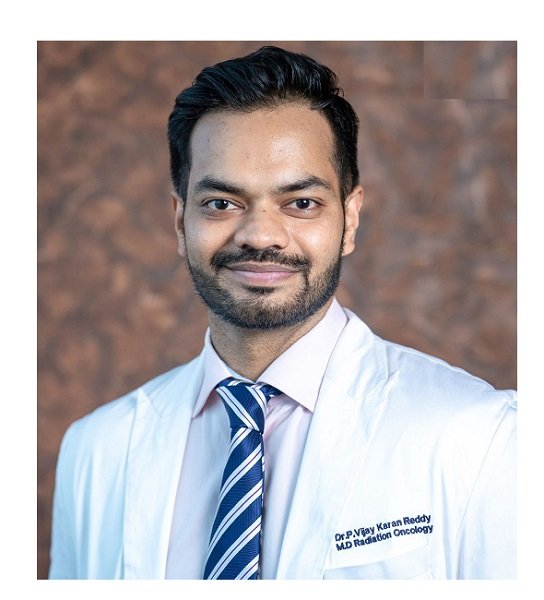Dr. P Vijay Karan Reddy, Consultant Oncologist, Apollo Cancer Institutes, Hyderabad.
Breast cancer is the most common cancer in women, with every 1 in 8 being diagnosed. As much as there is increasing awareness about its prevention and especially early detection, it’s important to bust the myths of breast cancer as well to make sure you don’t “miss the trick” and end up delaying the diagnosis. This October being Breast Cancer Awareness Month, let’s busy the myths about breast cancer!
1. Only older people can develop breast cancer.
Even though the likelihood that a breast lump is cancerous is higher in elderly women, it is never zero. Breast cancer is known to strike people of all ages, so even a young girl should see a doctor and get checked out if she notices a sudden change in how her breast feels or looks.
2. Breast cancer cannot develop while a woman is pregnant or breastfeeding.
When pregnant or breastfeeding, most women ignore subtle breast symptoms because they think they are “normal” changes. This frequently turns out to be dangerous and may delay diagnosis. Although early pregnancy and breastfeeding lower a woman’s lifetime risk, cancer can manifest during these times.
3. Breast cancer may develop when tight, underwired, or black bras are worn.
One of the most prevalent pieces of false information about breast cancer frequently spread among women is this one. Your underwear selection is crucial for your comfort but does not affect your likelihood of developing breast cancer.
4. Deodorants cause breast cancer.
There is no conclusive scientific evidence connecting the use of deodorants and antiperspirants with an elevated risk of developing breast cancer, despite claims that underarm deodorants containing aluminum and parabens may be carcinogenic.
5. Physical harm may result in breast cancer.
Patients frequently blame an injury on their breast lump. Most of the time, the injury is not what causes the breast lump; instead, it merely draws your attention to an existing breast lump. Hematomas can develop after physical trauma, but breast cancer never does.
6. Sugar and dairy consumption lead to breast cancer.
Due to the hormone content, some studies have suggested that drinking milk may increase your risk of developing breast cancer. However, it is not advised to eliminate dairy or sugar from your diet. The importance of moderation cannot be overstated. Breast cancer risk increases with any unbalanced diet that may result in weight gain, especially if you are postmenopausal.
7. Breast pain is a sign of breast cancer.
If a breast lump or nipple discharge does not cause pain, women frequently ignore them. It is probably in our nature to disregard things that don’t bother us, but it’s crucial to understand that most cancerous lumps are painless.
8. You are immune to breast cancer if there is no family history.
This is entirely false. and the majority of Hereditary or familial factors are only 5–10% of causes of breast cancer, there is no family history of breast, ovarian, or other cancers among newly diagnosed patients.
9. Mammograms prevent breast cancer.
A mammogram is an X-ray of the breast tissue. Early breast cancer detection is beneficial and frequently advised for women over 40. Although it may miss some cancers in younger women, it does not prevent cancer.
10. Breast cancer cannot affect men.
Last but not least, breast cancer can also affect men. Despite having a much lower chance, breast cancer is known to affect men and can manifest as a lump or chest ulcer.
Where there is a will there is a way. This Breast Cancer Awareness month make sure you go get yourself screened.
